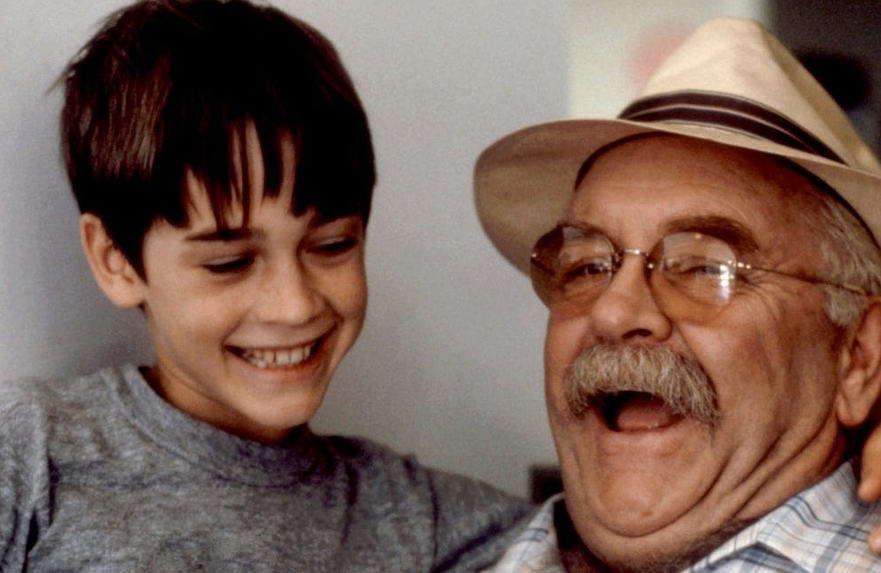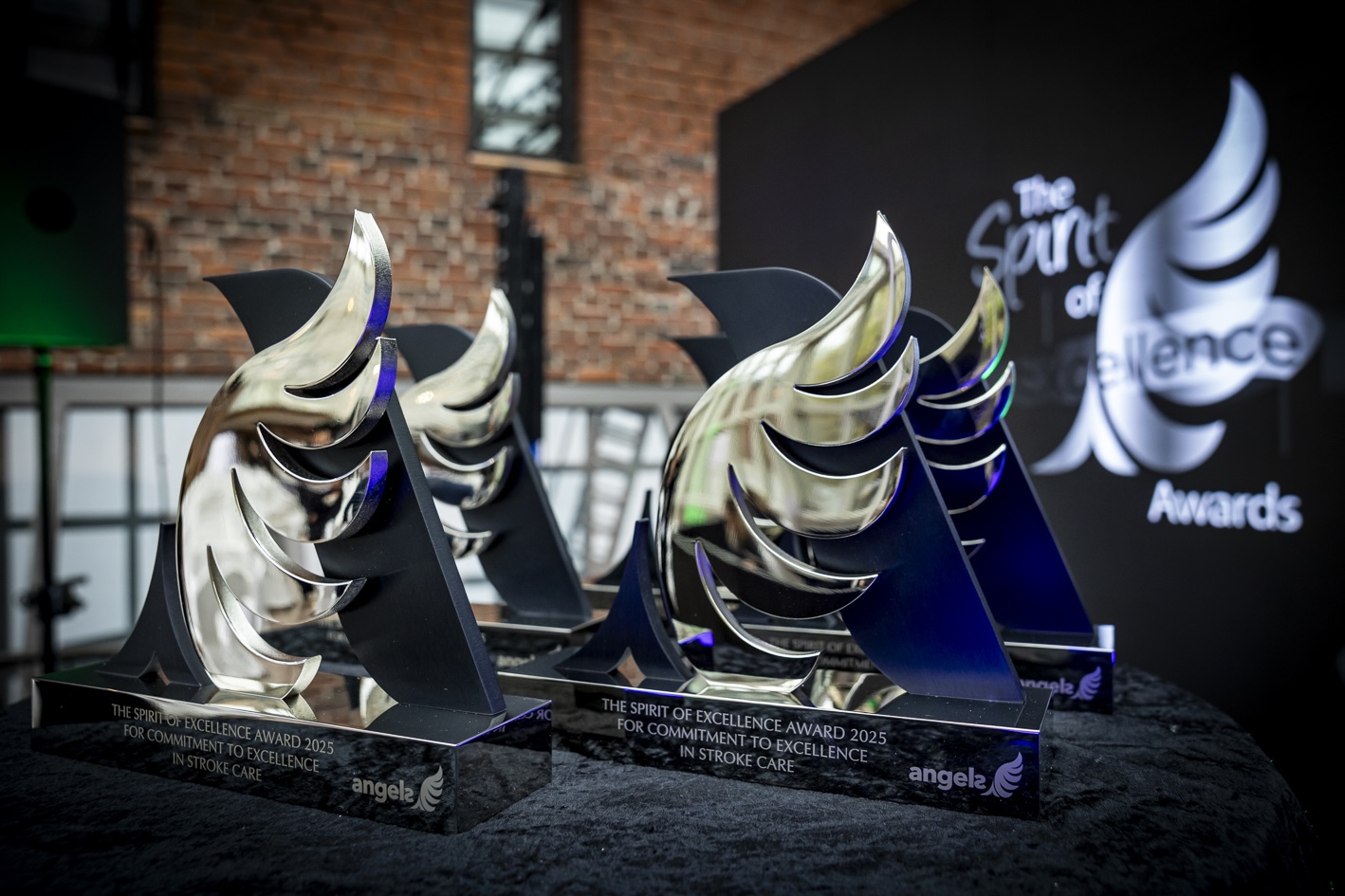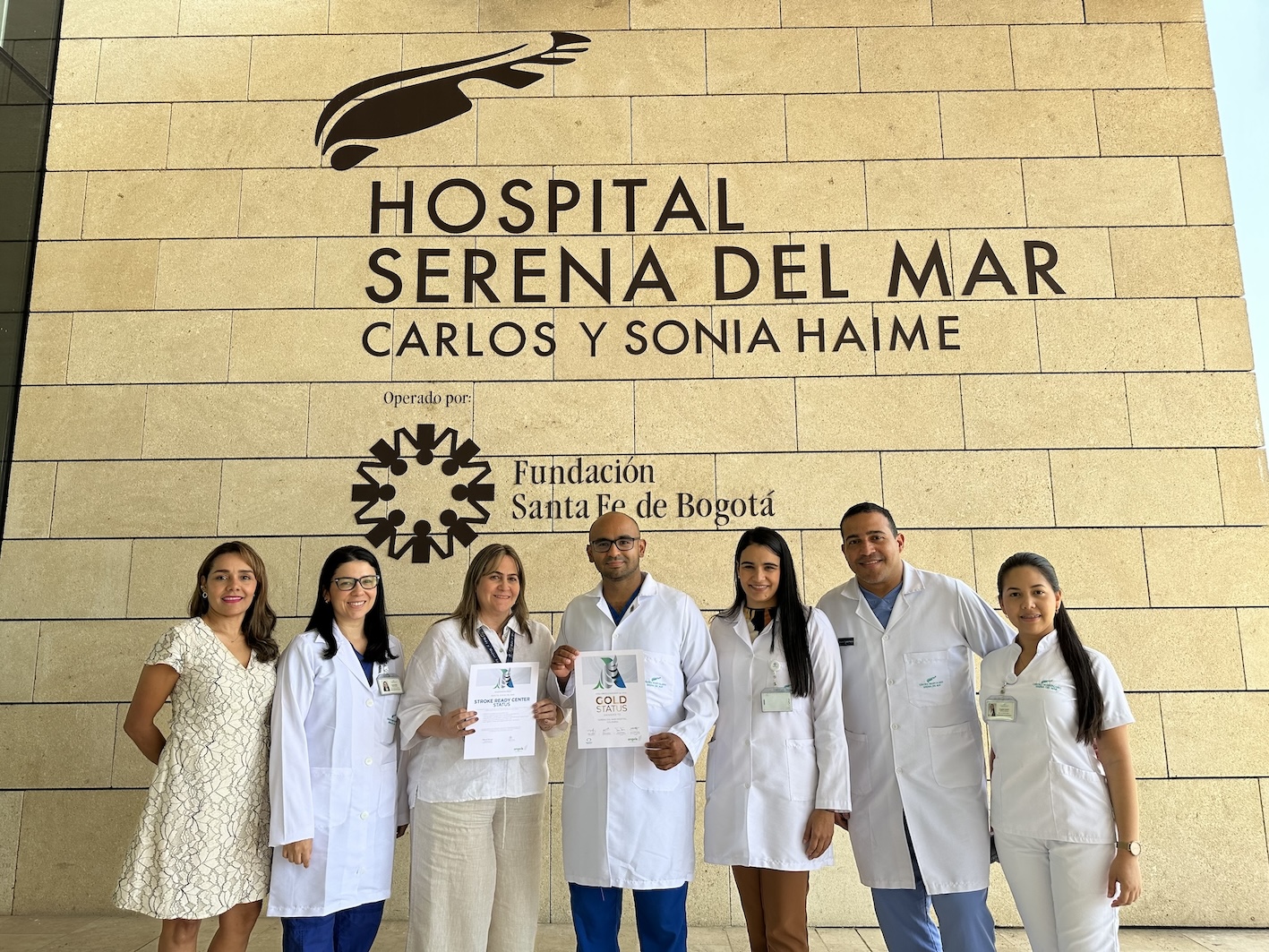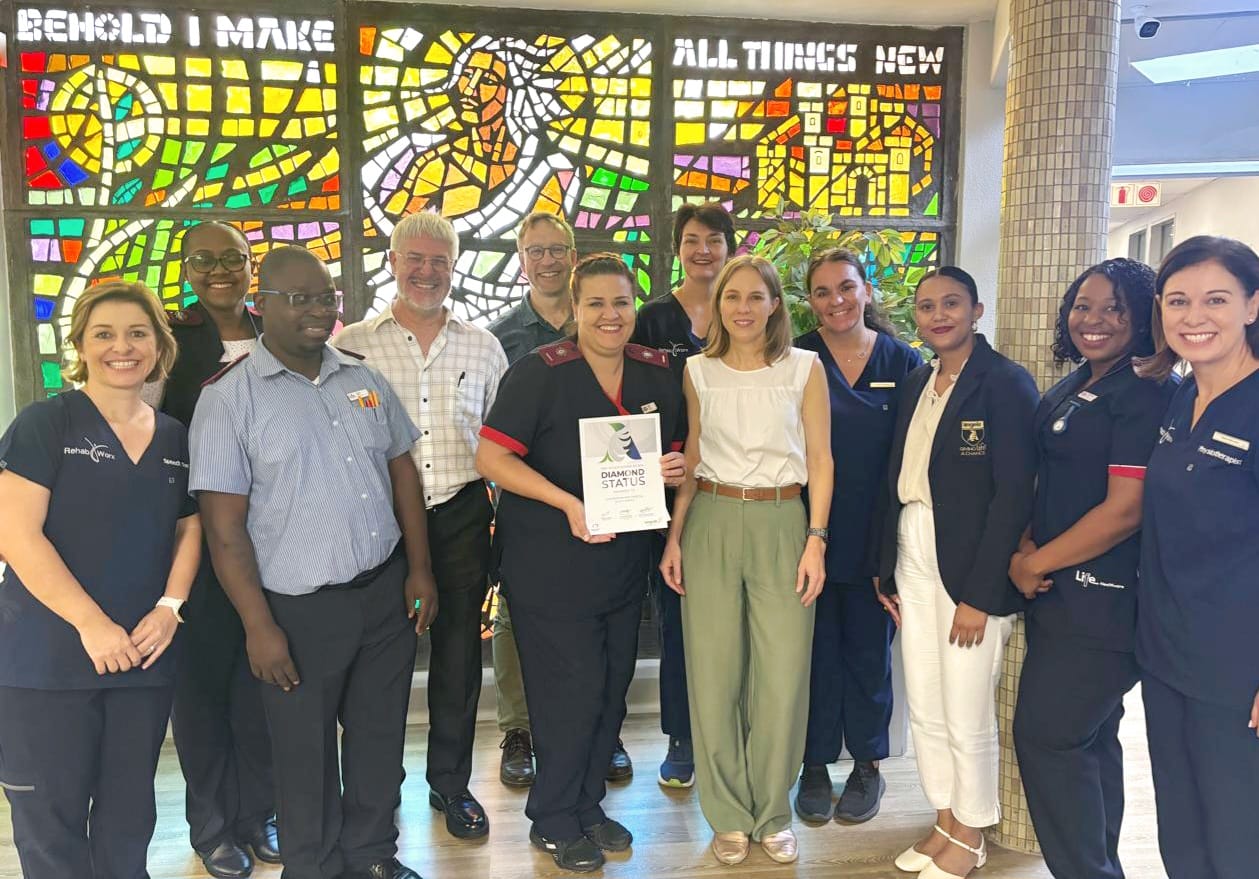
Il existe des actes de soins pour lesquels il n’y a pas d’prix. Comme la diligence d'une personnel infirmier spécialiste de l’accident vasculaire cérébral qui place un oreiller sous le bras affecté d'une patient lorsqu'elle les tourne de l'autre côté. La patience de montrer à la famille effrayée par un patient ayant subi un accident vasculaire cérébral comment prendre soin de son proche, puis de l'expliquer doucement de nouveau. La gentillesse d’une infirmier/ère junior humidifiant les lèvres en poudre avec des glaçons au milieu d’une longue nuit.
Et il est difficile d’imaginer un prix qui rendrait justice à trois décennies d’espoir en matière d’ingénierie.
Trente ans se sont écoulés depuis que le Dr Wiebren Duim est devenu neurologue, la même année, un article est apparu dans le New England Journal of Medicine qui changerait irrévocablement les soins neuro-vasculaires. La percée est survenue dans une étude de référence qui établirait la thrombolyse comme traitement standard pour l’accident vasculaire cérébral ischémique, ce qui changerait potentiellement les résultats pour des millions de patients victimes d’accident vasculaire cérébral dans le monde.
Il avait développé un intérêt pour l'accident vasculaire cérébral très tôt, dit le Dr Duim, et il était un croyant précoce dans l'impact des soins de l'unité neuro-vasculaire et de la rééducation fonctionnelle précoce. L’avènement de la thrombolyse pour l’accident vasculaire cérébral ischémique aigu a également fait de lui un croyant en miracles.
"Il envoie un frissons le long de la colonne vertébrale", dit-il, décrivant l'effet d'une recanalisation réussie. "Si vous voyez quelqu'un avec un accident vasculaire cérébral aigu, il vous regardera avec un visage vierge. Pas de mouvement, pas d'expression hormis la peur".
Mais si vous faites ce qu'il faut et que vous les traitez par thrombolyse en moins de quatre heures et demie (car c'est tout le temps que vous avez à changer le issue d'une catastrophe), alors vous ne croyez pas vos yeux.
"Pendant que vous écrivez encore vos notes, faites les formalités administratives, organisez un service, vous remarquerez un mouvement. Deux jours plus tard, vous verrez ce patient sortir de l’hôpital. C'est comme un miracle, je ne peux pas l'expliquer, mais si on le voit, on est une conversion".
Et ça c'est l'intention du Dr Duim depuis toujours – de vous transformer en une conversion.
"Une fois que j’ai une conversion", il continue, "ils deviennent un champion de l’accident vasculaire cérébral. Puis, quelle que soit l'heure du jour ou de la nuit, quelles que soient les circonstances, viennent pluvieux ou brillants, ils feront ce qui est nécessaire."
Et il veut vraiment dire "faire", parce que tous les patient ne sont pas un miracle de deux jours. Pour ceux pour lesquels la vie ne sera plus jamais la même, qui doivent emprunter une longue et dure route sans destination claire, l'espoir commence quand on "fait quelque chose".
"Vous faites quelque chose", explique le Dr Duim. "La physio vous fait sortir du lit et vous fait vous tenir debout. Elle augmente votre force avec la sienne, elle la remet en place. Et la prochaine fois que vous voyez le patient, il a un sourire sur le visage, parce que quelque chose s'est passé, il y a des progrès. Hier ils ne pouvaient pas bouger, mais aujourd'hui il y a un nouveau scintillement d'espoir".
L’espoir s’accumule avec le temps. Et lorsque, au final, le patient sort pour une vie qu’il peut ne pas reconnaître, le travail de construction de l’espoir est transféré à la communauté accident vasculaire cérébral. En 30 ans, le Dr Duim a souvent été témoin de la manière dont un accident vasculaire cérébral débouche sur la bonne volonté d’une communauté préparée à faire des plans, à appuyer et à supporter un fardeau ensemble.
"Il apporte des larmes à vos yeux", dit-il.
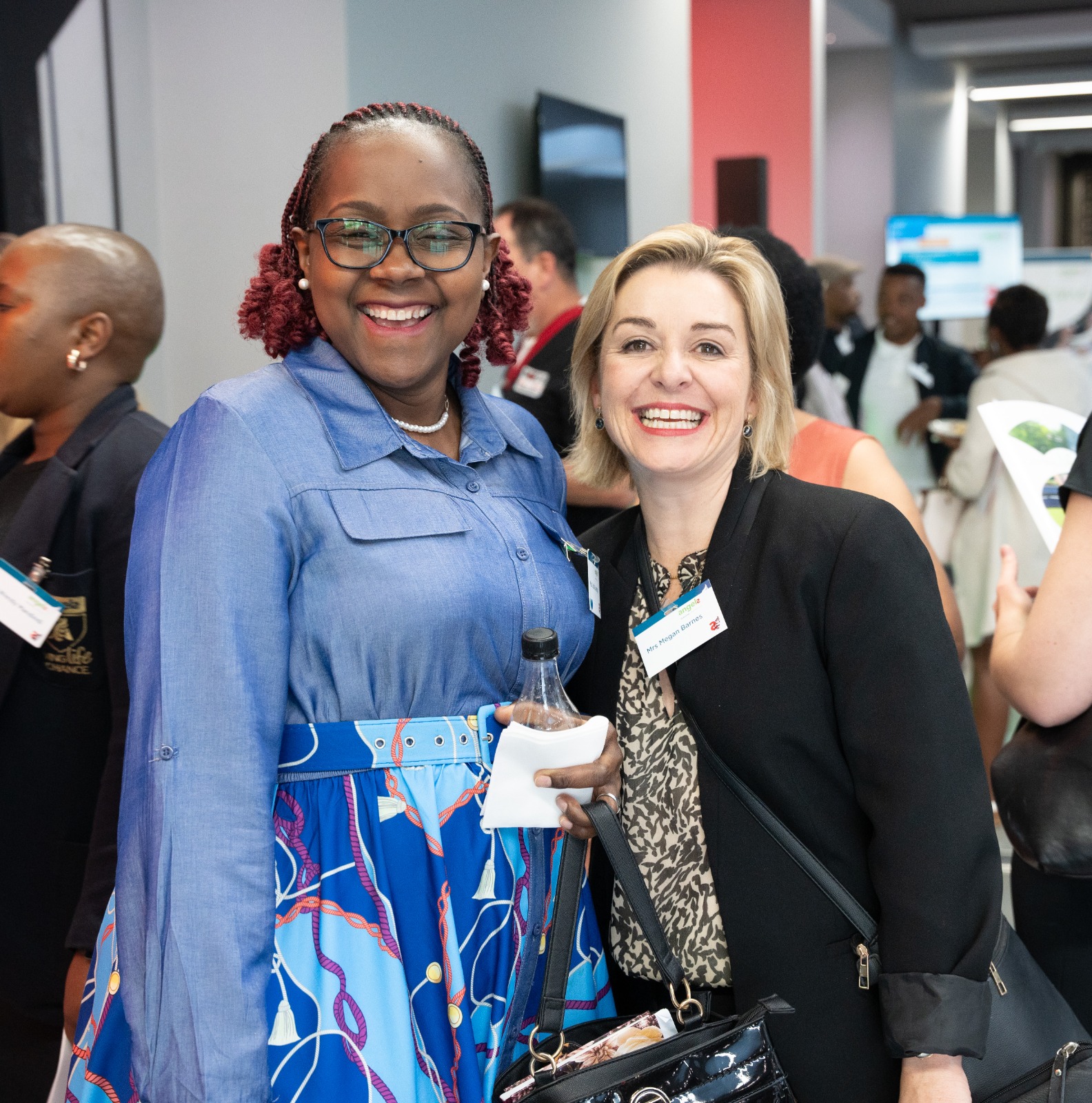
"On s'assoit et on le trouve"
L'hôpital Life Groenkloof, anciennement The Little Company of Mary, est un hôpital privé situé à Pretoria, capitale administrative d'Afrique du Sud. Le domicile clinique du Dr Duim depuis 20 ans, il avait une réputation d’excellence en matière de soins neuro-vasculaires bien avant qu’il ne remporte son premier Angel Award en 2024. Une fois par an, lors de la Journée mondiale de l’AVC, l’hôpital se baigne en lumière verte dans le cadre du programme de sensibilisation à l’accident vasculaire cérébral dirigé par la coordonnateur des communications Karen Landsberg. Cette campagne met en évidence les rôles essentiels que jouent les infirmières et les médecins des services d’urgence dans la prise en charge d’urgence des personnes victimes d’AVC. Pour le responsable des unités d’urgence, Sr Elaine Lubbe, c’est un moment où la fierté ressemble à une boule dans votre gorge.
L'hôpital Life Groenkloof est l'endroit où vous avez l'honneur de rencontrer certaines des conversions du Dr Duim, parmi lesquelles l'orthophoniste Megan Barnes et le Sr Lydia Lwanga, chef d'unité du service de neurologie aiguë, St Francis, qui, avec le Sr Elaine, dirige le processus de surveillance de la qualité qui a permis à l'hôpital de passer du statut d'or au diamant en moins un an.
Le service de neurologie est situé au même étage que la salle de sport où les patients victimes d’accident vasculaire cérébral suivent trois heures de thérapie par jour, explique Megan. "Alors, les infirmières répètent ce qu'elles nous ont vu faire".
Le travail d'équipe est plus qu'une simple phrase d'accroche, et la guérison de chaque patient est une conversation continue. "On s'assoit et on le trouve", dit Megan, en ajoutant qu'ils parlent "cent fois par jour".
Megan fait partie de l'équipe du Dr Duim depuis le début, prévenant les complications et apprenant aux survivants d'accident vasculaire cérébral comment vivre au mieux leur vie. Les réunions familiales font partie du protocole et l'espoir est servi avec un côté de la réalité. La rééducation est difficile.
L'éducation des familles réduit les taux de réadmission, et l'équipe de l'hôpital Life Groenkloof fait tout son possible pour préparer les familles des patients à ce qui est inévitablement une période difficile à venir. Lorsque les parents sont rares, comme lorsque les enfants adultes des patients âgés vivent à l’étranger, cela peut tomber doucement mais fermement dans l’esprit de l’équipe, priver quelqu’un de son indépendance.
Megan dit : "Nous sommes aussi là quand de grandes décisions de vie sont prises." Ce n'est pas facile de dire à quelqu'un qu'ils ne peuvent pas rentrer chez eux.
Sr Elaine est arrivée à l'hôpital Life Groenkloof il y a 18 ans et se souvient avoir reçu un livret et qu'on lui a dit qu'il s'agissait du processus du Dr Duim. "Sa passion nous a frappé", dit-elle. Sa propre passion s'enflamme en ayant un impact positif sur d'autres vies, en motivant ses plus jeunes collègues et en "voir une vague de patient au revoir avec le bras qui a été affecté par l'accident vasculaire cérébral".
En 2023, elle et le Sr Lydia ont décidé qu’il était temps pour l’équipe spécialiste de l’accident vasculaire cérébral de l’hôpital Life Groenkloof d’être reconnue pour leur travail. "Nous voulions être sur la carte", dit-elle. La soumission de leurs données de patient sur RES-Q leur a donné un feedback instantané sur ce qui pourrait être amélioré et une visite à leurs collègues de l'hôpital Life Eugene Marais (déjà prix) les a aidés à dépasser la publication.
Tous les hôpitaux de soins de santé de la vie en phase aiguë inscrits dans le programme de restauration de l’AVC sont des hôpitaux prêts à la prise en charge des accident vasculaire cérébral et ont mis en œuvre le parcours intégré de prise en charge des accident vasculaire cérébral. Ils fournissent tous des interventions critiques telles que la thrombolyse intraveineuse et offrent un accès immédiat aux services de neurorééducation. À ce jour, onze hôpitaux Life ont remporté les Angels Awards de la WSO, y compris 12 prix diamant, dont deux seraient à l'origine du nom de l'hôpital Life Groenkloof d'ici la fin 2024.
À la fin du premier trimestre, leur première prix en or avait confirmé qu’ils étaient déjà très bons. Au cours du deuxième trimestre, un prix platine a indiqué qu’ils s’étaient encore améliorés. Devenir un hôpital diamant a consolidé sa position parmi les principaux hôpitaux mondiaux traitant l’accident vasculaire cérébral. Ça ne va pas mieux que ça.
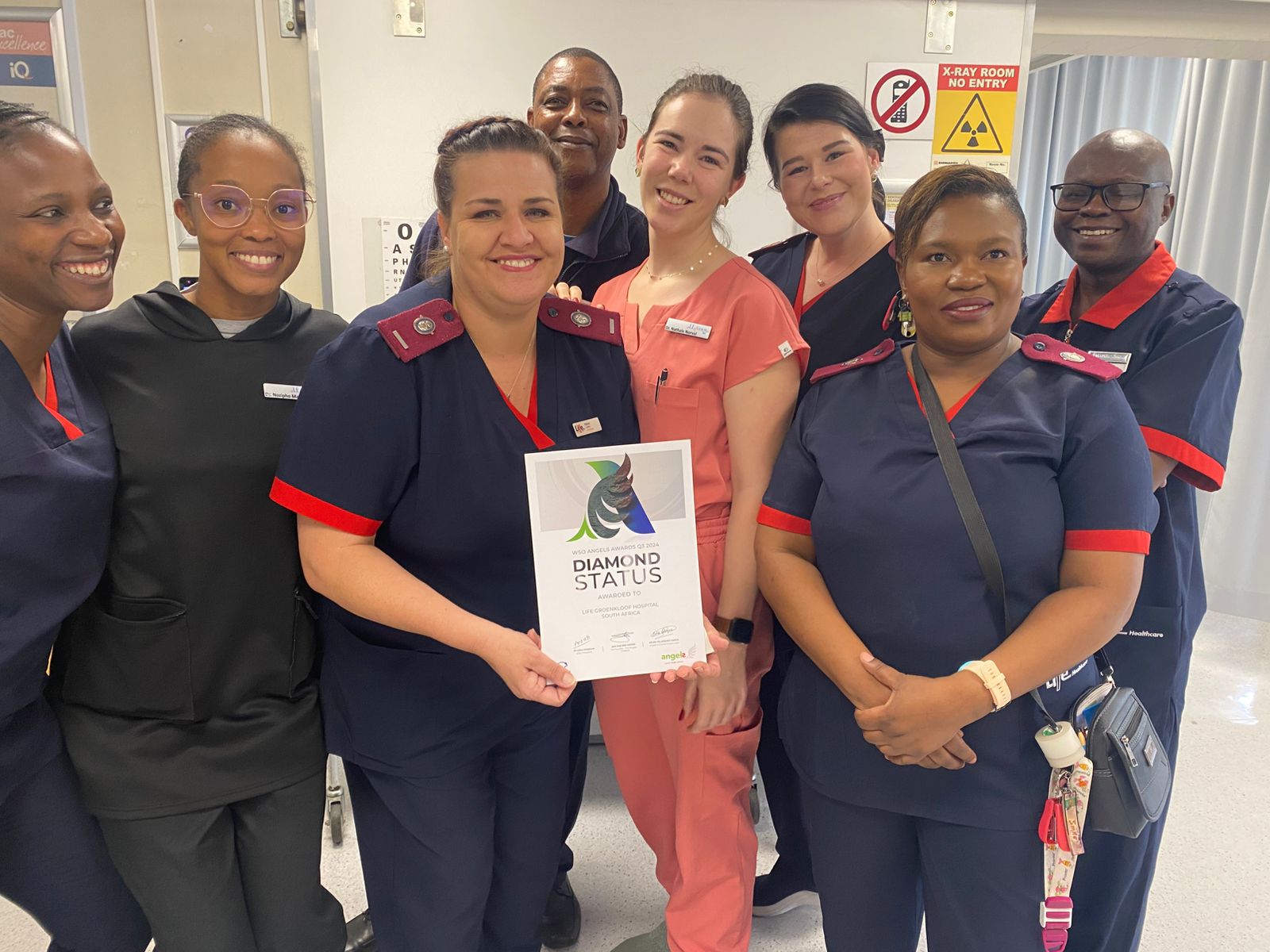
"Nous infirmier/ère différemment"
Sr Lydia Lwanga pensait avoir trouvé sa niche en obstétrique jusqu’à ce qu’elle vienne à l’unité neurologique de St Francis en 2013 et découvre des soins infirmiers pour accident vasculaire cérébral. "Elle m'a fait vibrer l'esprit", dit-elle.
Elle adore voir les patients passer de l'impuissance à la "maison et guéri" et se rappeler qu'ils ont une famille en attente de leur retour à la maison, nourrit son empathie. "Tu les traites comme si c'était ta mère, ton père, ta sœur, ton frère", dit-elle. "Tout le monde donne le meilleur d'eux-mêmes."
"Nous traitons chaque patient comme nous voudrions qu'une personne de notre famille soit traitée", sr Elaine est d'accord. Les infirmières d'urgence prospèrent généralement sur l'adrénaline, mais Elaine dit qu'elles ont un "toucher plus doux". Cette approche compassionnelle pour prendre soin de leurs patients vulnérables semble intuitive avec tout le monde dans l’équipe. "C'est dans l'eau potable", Sr Elaine quips.
Les soins infirmiers spécialisés dans l’AVC sont une discipline unique, qui nécessite de nombreuses profondeurs d’empathie combinées à une résolution sidéreuse. Il ne s'agit pas d'un service typique où vous trouverez les patients correctement rentrés et la literie parfaite.
"Nous infirmier/ère différemment", dit Megan.
Dans le service du Sr Lydia, ils veulent que le patient s'alimente, qu'il apprenne à prendre en charge sans sonde, qu'il fasse ces pas difficiles vers sa deuxième chance. Il faut parfois être strict.
"On veut qu'ils aient une vie après leur départ, donc ils doivent s'adapter à un nouveau niveau de fonctionnement. Le service accident vasculaire cérébral le fait. Ça peut ressembler à du chaos, mais on veut le chaos, c'est la gestion du chaos".
La guérison peut être salissante, comme la vie elle-même.
"Nous partageons tous une vision", dit Megan. "Nous savons tous quoi faire. Et le faire avec patience et amour est bon pour le moral. C'est pour ça qu'on continue à le faire. Voir l'amélioration de la qualité de vie de nos patients est bon pour notre âme".

